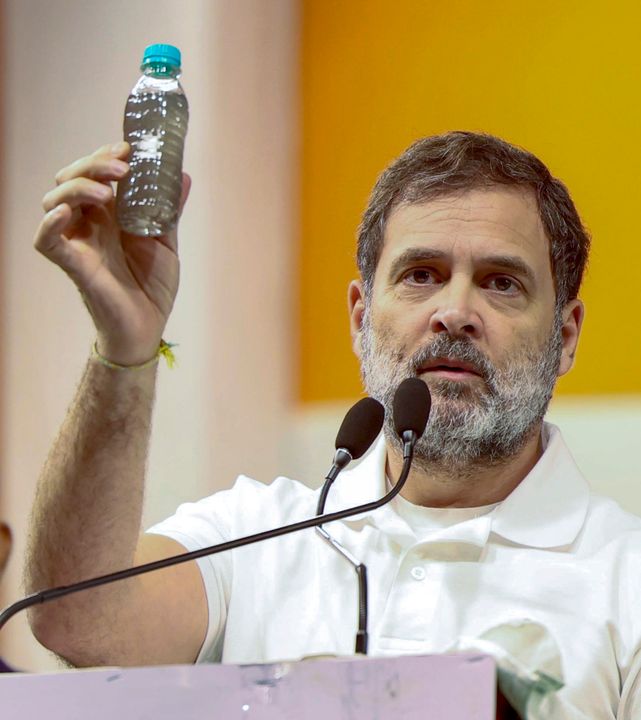Pune, Feb 5 (PTI) – A recent survey on water quality conducted around Nanded village, the epicenter of the ongoing Guillain-Barre Syndrome (GBS) outbreak in Pune, has revealed a concerning lack of chlorine in the drinking water supplied to households of 26 affected patients. GBS, a rare neurological disorder, causes sudden muscle weakness and numbness, with severe limb weakness among its symptoms.
The survey was part of a larger investigation by the Rapid Response Team (RRT), which was established to probe the rise in GBS cases around Nanded and nearby areas along Sinhagad Road. On Tuesday, health authorities confirmed the detection of three more GBS cases in Pune, pushing the total to 166.
The investigation into the outbreak showed that of the 77 GBS patients in Nanded, water samples were taken from 62 households. In a worrying finding, 26 of these households had drinking water with zero chlorine content, which was discussed at a recent RRT meeting.
Experts have now urged the Pune Municipal Corporation's (PMC) water supply department to take immediate action to maintain a chlorine concentration of at least 0.2 parts per million (ppm) in the drinking water supplied to households to ensure public health safety.
“While the water from the well, which is the primary source, was adequately chlorinated, no chlorine was detected in the household water of 26 patients,” an RRT member said.
Following the findings, the PMC has been asked to urgently address the chlorine levels in local water supplies to prevent further health risks. Last week, Maharashtra Health Minister Prakash Abitkar highlighted that nearly 80% of suspected GBS cases in Pune originated from areas around a large well in Nanded. Authorities suspect that water contamination might be contributing to the higher number of cases in the region.
In response, Nandkishor Jagtap, head of PMC's water supply department, explained that while the well water is adequately treated with chlorine, the zero chlorine levels in certain households could be due to alternate water sources, such as private tankers, or improperly maintained overhead water tanks. Jagtap also noted that chlorine levels in large water storage tanks could fluctuate over time, potentially affecting safety.
The PMC’s water quality testing also found cases of E. coli contamination in some private water tankers. In response, notices have been issued to the operators of these tankers, and they have been instructed to use chlorine bleach solutions provided by the PMC to disinfect the water. Some private water ATMs were even seized after traces of E. coli were detected.
Meanwhile, Dr. Radhakishan Pawar, deputy director of the state health department and chairman of the RRT, shared that the GBS outbreak appears to be subsiding. “Currently, there are around 165 cases in total, with 77 cluster cases from Nanded. The remaining cases are from other districts and do not seem linked to Nanded,” he said. Dr. Pawar also observed a decline in cases, with the peak of the outbreak occurring around January 18-19.
As the situation stabilizes, health authorities continue to monitor the outbreak and investigate potential sources of contamination to prevent further cases.
The survey was part of a larger investigation by the Rapid Response Team (RRT), which was established to probe the rise in GBS cases around Nanded and nearby areas along Sinhagad Road. On Tuesday, health authorities confirmed the detection of three more GBS cases in Pune, pushing the total to 166.
The investigation into the outbreak showed that of the 77 GBS patients in Nanded, water samples were taken from 62 households. In a worrying finding, 26 of these households had drinking water with zero chlorine content, which was discussed at a recent RRT meeting.
Experts have now urged the Pune Municipal Corporation's (PMC) water supply department to take immediate action to maintain a chlorine concentration of at least 0.2 parts per million (ppm) in the drinking water supplied to households to ensure public health safety.
“While the water from the well, which is the primary source, was adequately chlorinated, no chlorine was detected in the household water of 26 patients,” an RRT member said.
Following the findings, the PMC has been asked to urgently address the chlorine levels in local water supplies to prevent further health risks. Last week, Maharashtra Health Minister Prakash Abitkar highlighted that nearly 80% of suspected GBS cases in Pune originated from areas around a large well in Nanded. Authorities suspect that water contamination might be contributing to the higher number of cases in the region.
In response, Nandkishor Jagtap, head of PMC's water supply department, explained that while the well water is adequately treated with chlorine, the zero chlorine levels in certain households could be due to alternate water sources, such as private tankers, or improperly maintained overhead water tanks. Jagtap also noted that chlorine levels in large water storage tanks could fluctuate over time, potentially affecting safety.
The PMC’s water quality testing also found cases of E. coli contamination in some private water tankers. In response, notices have been issued to the operators of these tankers, and they have been instructed to use chlorine bleach solutions provided by the PMC to disinfect the water. Some private water ATMs were even seized after traces of E. coli were detected.
Meanwhile, Dr. Radhakishan Pawar, deputy director of the state health department and chairman of the RRT, shared that the GBS outbreak appears to be subsiding. “Currently, there are around 165 cases in total, with 77 cluster cases from Nanded. The remaining cases are from other districts and do not seem linked to Nanded,” he said. Dr. Pawar also observed a decline in cases, with the peak of the outbreak occurring around January 18-19.
As the situation stabilizes, health authorities continue to monitor the outbreak and investigate potential sources of contamination to prevent further cases.

